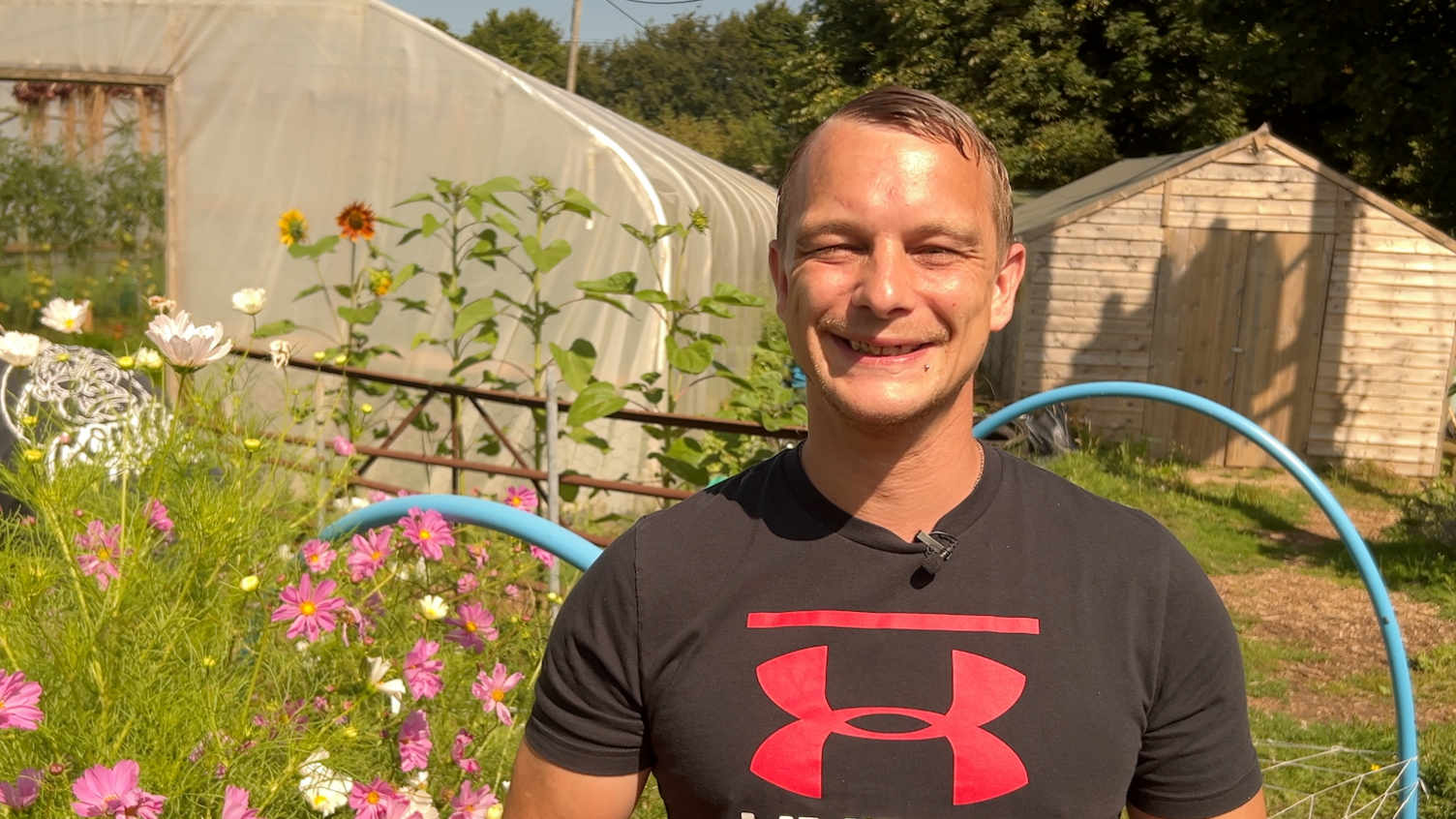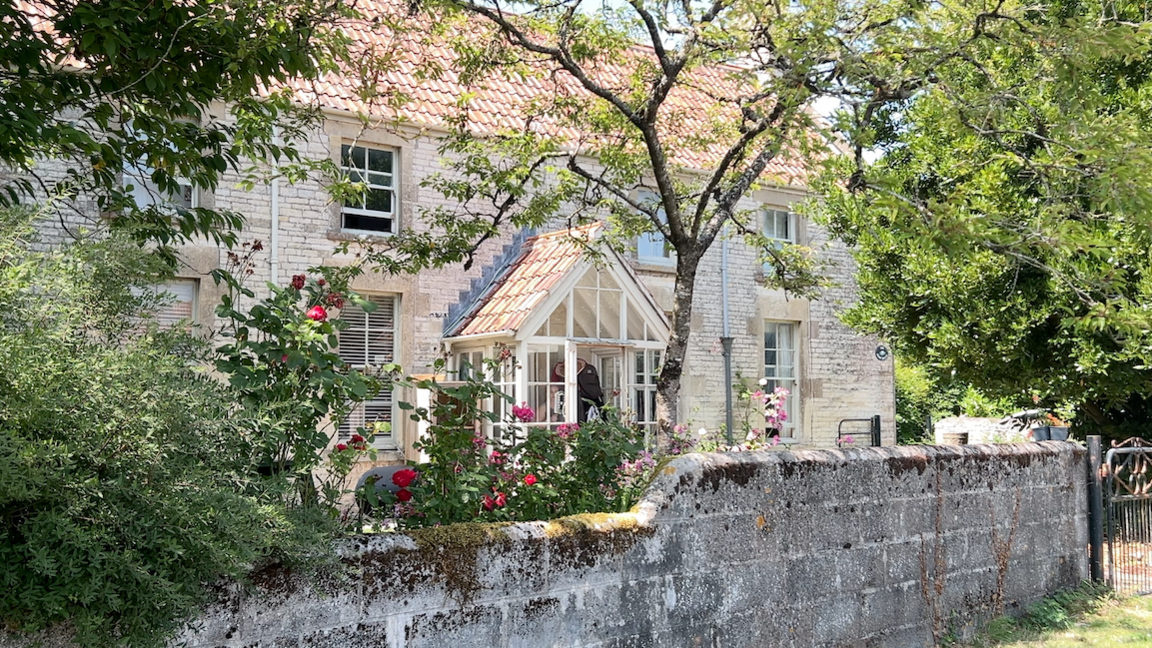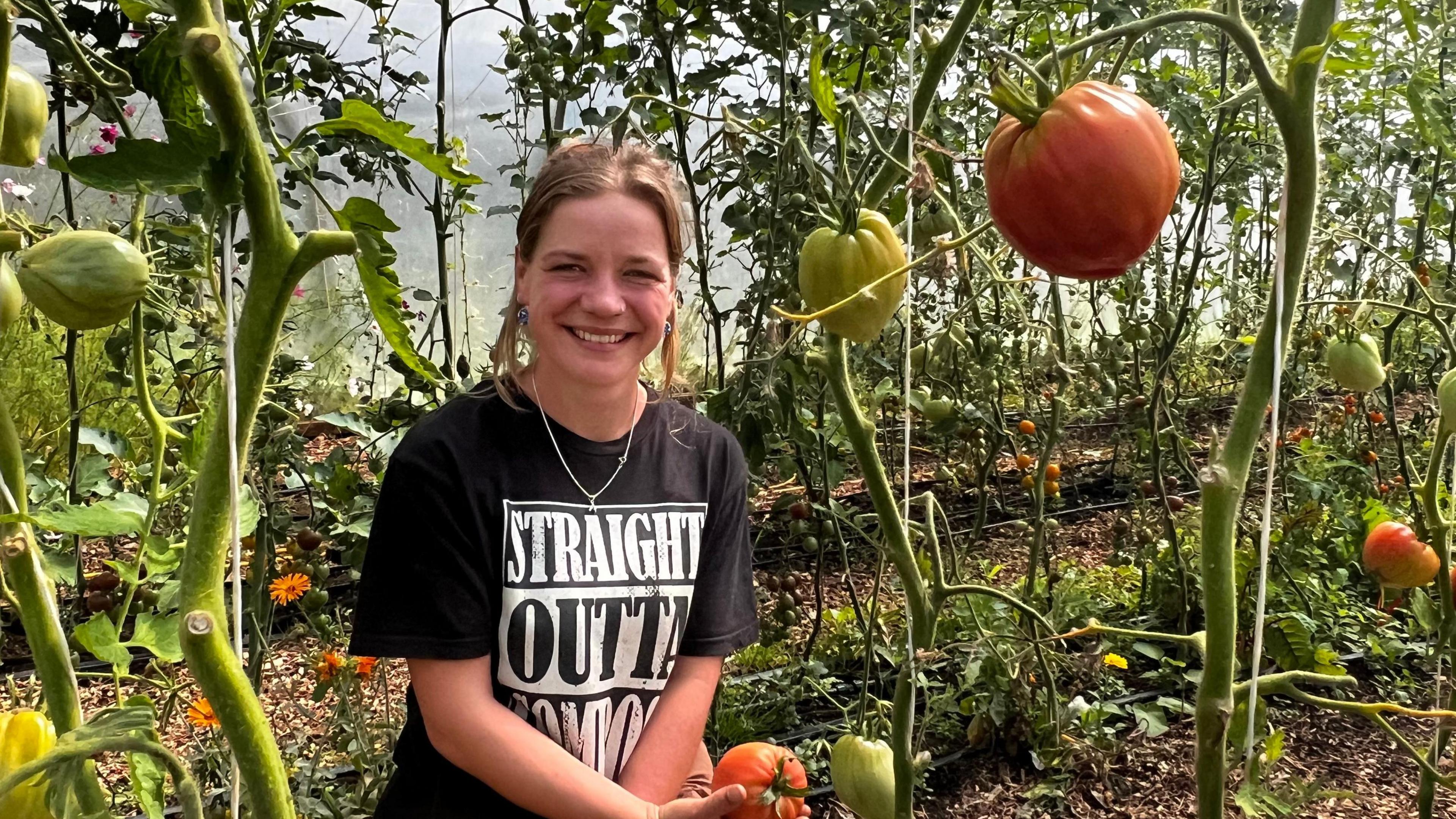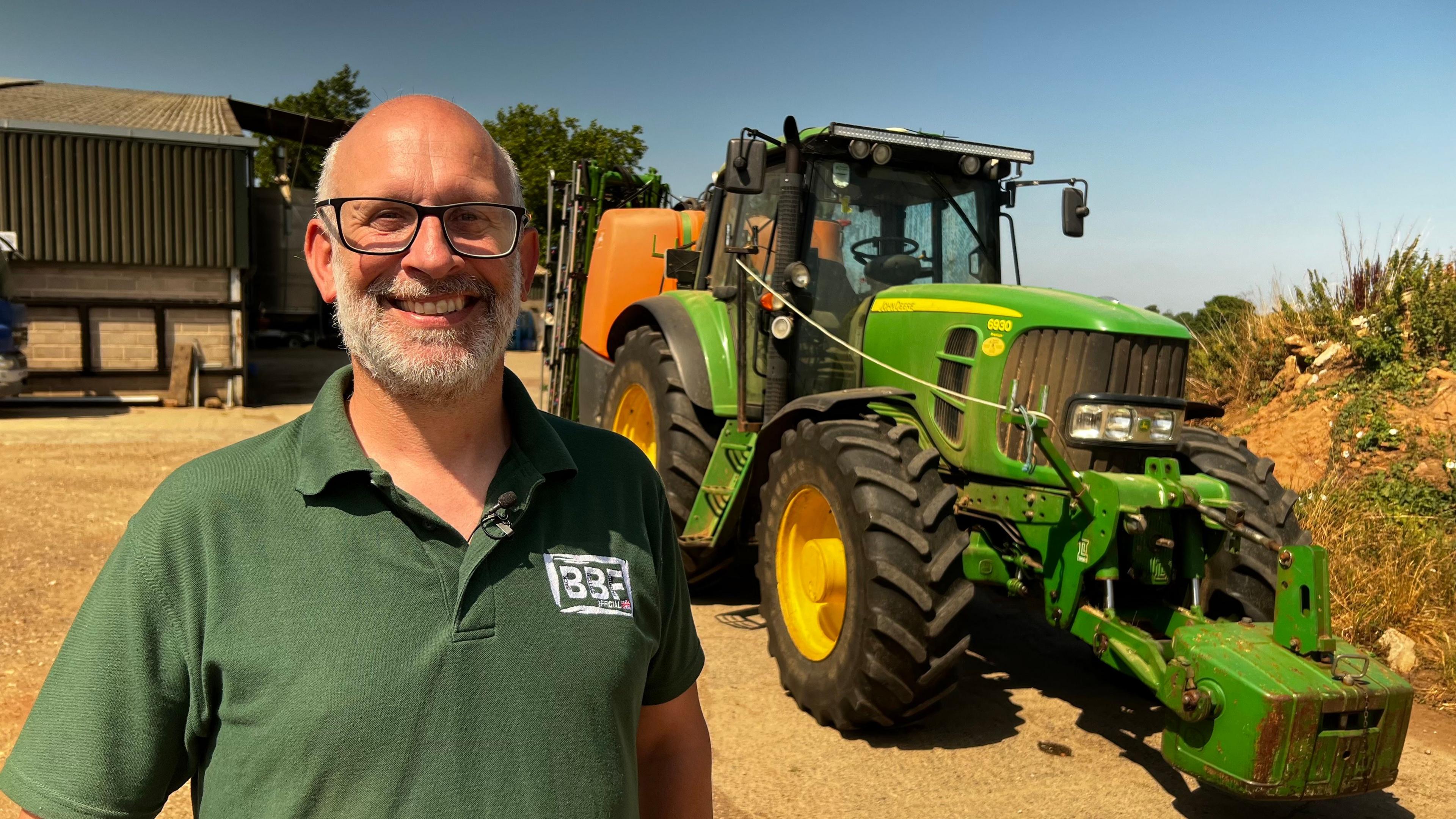Farm's homeless hostel is 'like my family'

Dan described the project as "like a family"
- Published
A farm that has converted an old dairy house into a homeless hostel has had "above average success" helping people rebuild their lives.
"Farms are mainly places we grow food," says farmer Rob Addicott, "but they are also incredibly therapeutic."
The hostel, in Somerset, is home to seven people at a time who are recovering from drug or alcohol problems and have been sleeping rough, usually in the countryside.
Dan, one of the residents, describes the project as "like a family to me now, it's beautiful".

The old dairy house used to make cheese, and now is home to seven formerly homeless residents
Set in the Mendip Hills near Stratton-on-the-Fosse, Manor Farm is picture postcard Somerset. A walk along the old dry stone walls with the wind in your face attracts thousands of townies.
But imagine sheltering under that wall at night, like those who sleep rough in the countryside.
For rural rough sleepers, a busy hostel in a town or city is often also a scary place.
Rob and Suzanne Addicott decided they wanted to share their farm buildings with those without a bed. And they have done so professionally, with the local council and a charity who provide social work support.
Residents are given intensive help to get their lives back on track. They also help out in the kitchen garden, growing veg, fruit and flowers for a box scheme.
That's where I found Dan, picking tomatoes in the polytunnel.
"I love it," he smiled.
"I love nature, so it is for me. All the staff are so lovely, and to work with the plants is beautiful."

"They always leave with a smile," says head gardener Lily O'Dowd
The garden is managed by Lily O'Dowd, who not only has to grow a full kitchen garden of produce, but also has to schedule jobs for the residents and keep everyone busy.
"No matter how they come to the session," she says, "they always leave with a smile.
"It's great to see them working together, teasing each other. They always leave with joy from the session. And the satisfaction of having grown something, from a seed all the way through to harvesting it."
The residents work alongside volunteers in the gardens, who also deliver the veg boxes and cook a community meal once a week.
When I visited, they had made most of the lunch from the tomatoes, courgettes, cucumbers and onions from the gardens.
Simply cooking and eating a meal together is part of the therapy, as support worker Kate Dixon explains.
She says: "For a lot of people coming out of homelessness and into recovery, they've lived in a very selfish way. Part of the healing is to learn to live with other people, and know there are people there for them too."
The house and gardens are now run as a stand alone Community Interest Company, Roots Connections, external.

"Farming is therapeutic", says Rob Addicott
For Farmer Rob, who still farms the fields around the project, the Dairy House has been a real success.
He says: "People have gone on to earn their own house, or sustain a tenancy, and find meaningful work.
"A lot of people end up volunteering back in this sector, working with nature, because they want to give back to what they've come from."
And that is exactly what Dan plans to do, once he has found his feet and a new home.
"I'd like to volunteer in a project like this, or maybe with horses and animals. I love nature, and it's what I know, so it suits me fine," he smiles.
Get in touch
Tell us which stories we should cover in Somerset
Follow BBC Somerset on Facebook, external and X, external. Send your story ideas to us on email or via WhatsApp on 0800 313 4630.